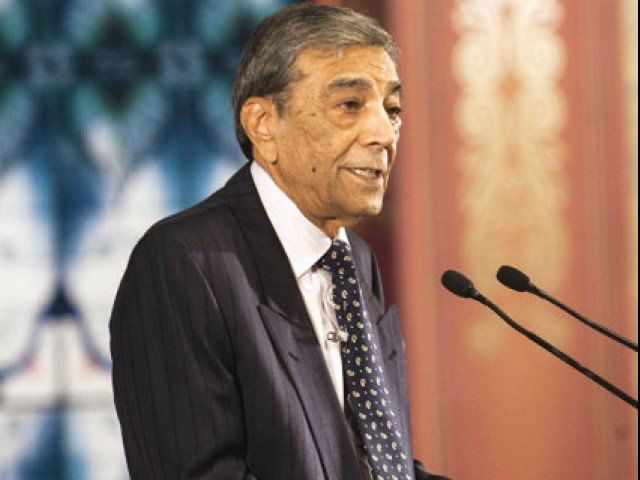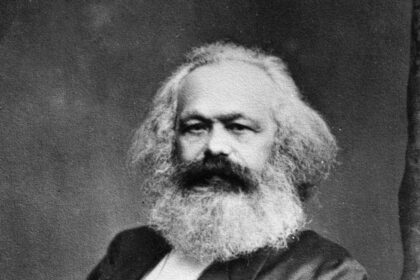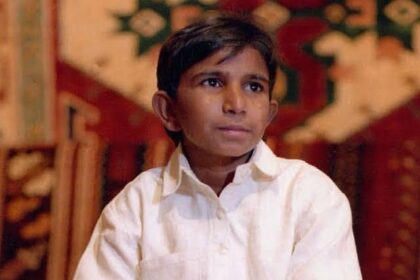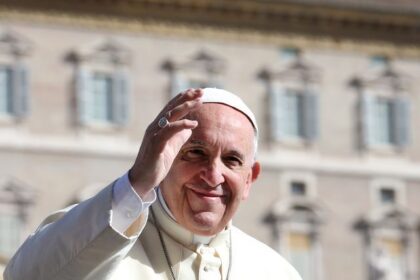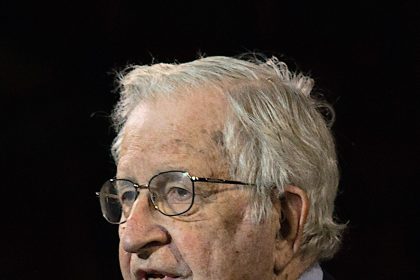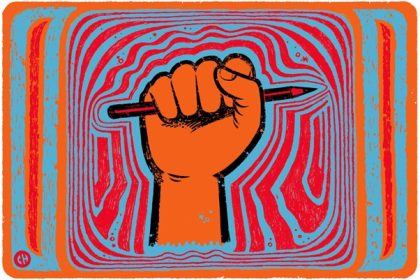اپنے بے خواب کواڑوں کو مقفل کر لو
اب یہاں کوئی نہیں، کوئی نہیں آئے گا۔
These words in themselves hold immense weight, but if you’ve ever heard Zia Mohyeddin narrating them, you’ll know that there might be nothing better and nothing worse than hearing them. Nothing better because his delivery wraps around the emotions with a sheer rawness, and nothing worse because the same rawness blissfully reminds one of their morbid reality. From Chacha Chakkan ka Afsana to reading Humma Begum ke Naam Khat, Zia Mohyeddin knew how to mobilise a crowd and leave them wanting more. His command over diction was strong, yet eloquent, sparking a literary renaissance in the country and turning over a new dimension to oration. Zia didn’t just recite poetry; rather, he engulfed himself within it, chiselling every verse with a reverence that felt earnest in every manner. Words said once are known to vanish, but they seem to etch themselves within one’s mind wherever Zia is concerned.
From Lahore to Hollywood: The Early Journey
Zia Mohyeddin was a man of many talents. Not just an actor; rather, he was also an orator, broadcaster, director and a literary enthusiast. Born in Faisalabad in 1931, his family had an Urdu-speaking background and belonged to Rothak, East Punjab, in British India. His interest in performing arts could be traced back to his father, Khadim Mohyeddin – a musicologist, playwright, lyricist and the first professor of music at the University of Punjab. Spending his early life in both Kasur and Lahore, Zia’s penchant for literary art grew as he joined training at the Royal Academy of Dramatic Art in London. Completing his training in 1956, he stepped into his acting career, with his first movie being released in 1960. His contribution to Hollywood was also quite notable, as he made appearances in Deadlier than Male, Sailor from Gibraltar and the infamous Lawrence of Arabia, along with many others.
Zia on Pakistani Screens:
His emergence in Pakistani media might have begun in the late 60s, initially with him starting his popular television show, “Zia Mohyeddin Show”, followed by his performances in films like Bombay Talkies, Mujrim Kaun and countless others. The early 70s were a time of great recognition for Zia, with him being appointed as the director of the PIA Arts Academy. However, as General Zia-ul-Haq imposed martial law in the country, the country stepped into a dark time for media and literature, also marking Zia Mohyeddin’s prompt return to the UK.
Zia’s Exile and Urdu:
Zia’s exile from the country was in a way synonymous with the one experienced by Faiz Ahmed Faiz, with both driven by a need to escape the dictatorship. During his time abroad, Zia became a global ambassador for Urdu literature, further establishing himself as a distinguished orator. He grew his stature to the extent that he became a regular feature at conferences like Jash-e-Rekhta. His return to Pakistan was marked by the establishment of the National Academy of Performing Arts in 2005 in Karachi. With Musharraf’s government encouraging cultural revitalisation, Zia also received institutional support for this step as he served as the president of NAPA till his death in 2022.
Controversy and Criticism:
While this must be hard to read for Zia’s fans, his legacy didn’t go unnoticed by the critics. While many praise him for his contributions, others label Zia for being an autocratic narcissist overly obsessed with shaistagi and dismissive of the common man’s language. Some argued that he preferred Faiz over Mantonot for literary merit but for stylish polish. His presidency over NAPA till his death was also seen by many as undemocratic. Even his infamous elocution also came under fire for being regarded as overly polished, plastic and a confusing blend of English and Urdu accents. His personal life was also a subject of criticism by many, especially his 3 marriages, a detail that questioned his character more than his career.
The Legacy Lives On:
With many criticisms not holding enough weight, no one can reject Zia’s lasting influence. Even today, few have been able to recite Faiz with enough grace, Patras Bukhari with just the right amount of playfulness and Manto with enough intrigue, as well as Zia, and even fewer have been able to take Urdu literature to a global level, reigniting the spark it once had. Zia Mohyeddin, despite his flaws, was a legend who made his effort in driving Urdu literature to its rightful place of honour.




